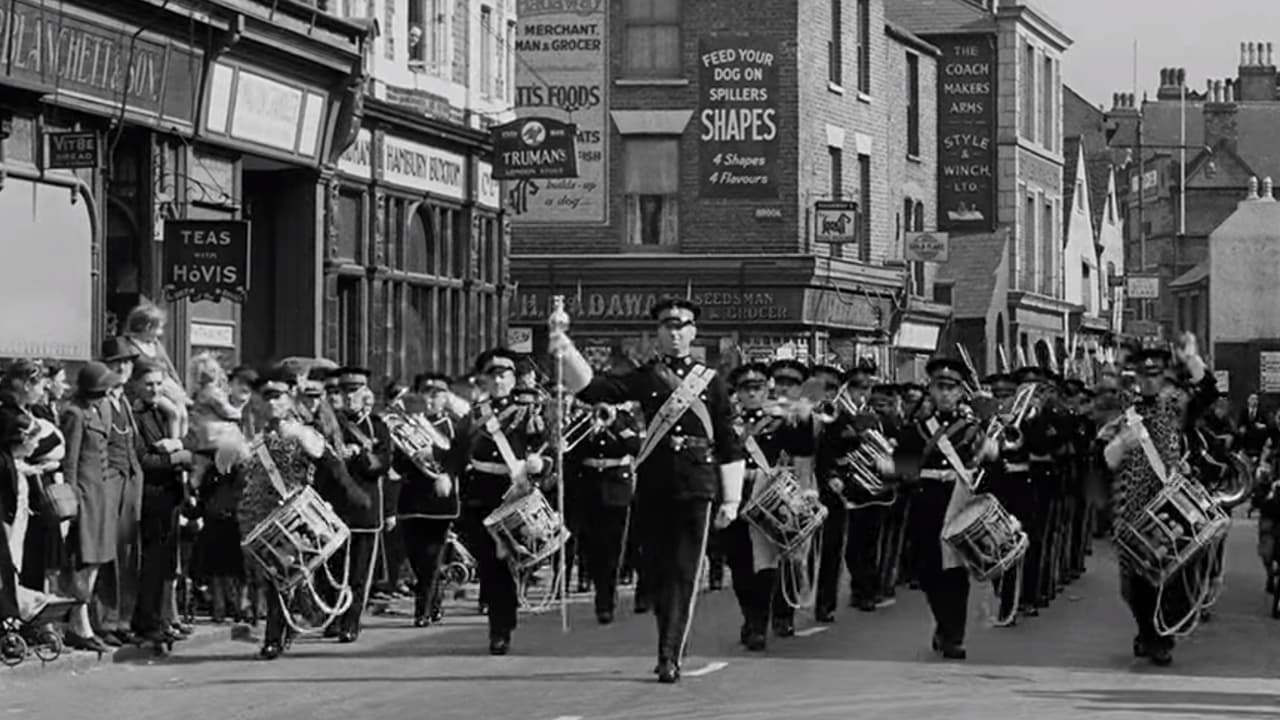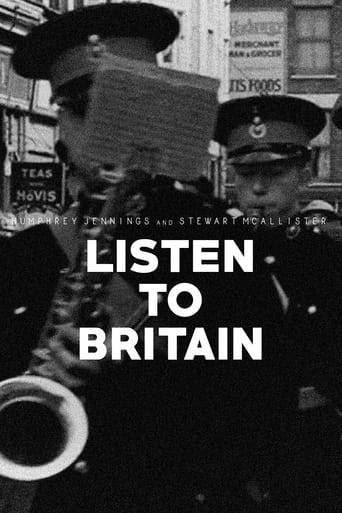Kaydan Christian
A terrific literary drama and character piece that shows how the process of creating art can be seen differently by those doing it and those looking at it from the outside.
Tymon Sutton
The acting is good, and the firecracker script has some excellent ideas.
Raymond Sierra
The film may be flawed, but its message is not.
Skyler
Great movie. Not sure what people expected but I found it highly entertaining.
Horst in Translation (filmreviews@web.de)
"Listen to Britain" is a 20-minute black-and-white documentary from the days of World War II almost 75 years ago. The two directors, Humphrey Jenning and Stewart McAllister both died pretty early and this may be the most known film they made. It was nominated for an Academy Award although that really was not that much of an achievement as there were over 20 nominees in the documentary category that year and four winners too. In here you see basically all kinds of aspects from life in Britain back in the day: civilians, industry worked, soldiers and even some landscape recordings. Obviously, there is also quite some patriotic touch to it. You had to be proud of Britannia and believe in her. However, from the filmmaking perspective I cannot see anything particularly interesting or outstanding here. It's worth a watch for historians, but everybody else does not have to see it.
gavin6942
A depiction of life in wartime England during the Second World War. Director Humphrey Jennings visits many aspects of civilian life and of the turmoil and privation caused by the war, all without narration.The title is literal -- the director is asking us to "listen" to "Britain". Not necessarily its people, and not the narration of someone telling us how to feel. Just the sound of the radio, the airplane, and anything else going on in daily life during the war. They even dance to "Roll Out the Barrel", though in some weird circular slow dance style rather than the polka version I know and love.This is probably considered Humphrey Jennings' masterpiece. That may be a fair assessment.
sandover
Unless one is a righteous liberal that can invent his shock of propaganda, you have to wait some ten minutes into this little film, that is half its narrative time, to call it that, in order to meet some propaganda meat, that is the scene of a female, arguably a mother, who watches a school yard with children playing and singing in circle, and THEN casting a glance on the photo of a soldier, arguably her husband on the front somewhere.The rest of the film was quite tame for my eyes (my ears towards the end as the sound quality deteriorated were somewhat offended, no?). The change from lunch time concert - and this is the reason any classical music enthusiast should watch this film, for that rare glimpse of Myra Hess, what expression cut her hands and face! - to industrial noise was funny. The tableau of the workers was as superb as any David painting, not animated by any kind of Soviet thrust. Is this due to English moderation and natural superiority, civilized manners, civility that propaganda is not pushy, and one could even say that the cinematic command is not that assured even? The early shot of men in uniform stationed somewhere, singing together is the closest we come to report from the front and the parade towards the end is a fraction of it for us to be witnesses of exultant pride. From report to witness to testimony this little film does not exploit hideous proportions as a piece of fiction like, say, "The Young Victoria" does in recent years (I refer to the coronation scene).The sense of improvisation in the film makes it more of a curiosity than an animosity, one whose quirky opaqueness should have been there for the audience back then, and one whose interest for us is different perhaps, yet valid.
Polaris_DiB
Don't mistake my rating for a dislike of the craftsmanship of this film: as a film, it's well made, and as a propaganda film, it's very effective. My poor rating of this film reflects a complete disagreement with the philosophy of this film as a whole.Instead of narrating a propaganda about the war using the usual shots of battle and strong-stated voice-over, this movie uses music and imagery to say, "Look!""Look at Britain!" "Look how Brits work!" "Look how Brits dance!" "Look at our wonderful countryside!" "Look at our art culture!" "Look at our Classical and Gothic architecture!" "Look at our well-behaved children!" "Look at our cultured masses!" "Look at our dignified warriors!" "Look at our excellent communication systems!"The problem with it is entirely in the presentation of these things: everything in this film is straight, ordered, classic, high art. Everything is dignified and structured. Even the kids play in perfect circles and are choreographed excellently. The people dance somberly and respectively. The audience listens attentively and quietly......everyone's such a good fascist.Okay, so maybe that's extreme, but it shows, to me, what these types of propagandistic narratives can inadvertently create: confusion in later generations over who was the enemy, really. Now while the blaming-of-non-fascists-as-fascists has become a sort of individually recognized fallacy unto itself, I think what this movie shows is how much nationalism and pride can turn the impression of their masses into characterless, straight-laced people with no sense of individual identity. It's very scary.After all, if you can make something as light as wheat flowing in the wind look like rows of well-organized troops with bayonets, you can certainly sell the idea of a perfect society as a strict, organized conglomerate of so-called "superior people" in all of their blank-faced homogeneity. Films like these were created to provide comfort for the audience, to present an idea of what they're fighting for. I'm sure this film was pretty effective. And my judgment of this film stands for films of the like type made by any country involved in any conflict, American, German, Japanese, French, Italian, English, anyone. Films like these blur the line between enemies in conflict by showing just how much self-regard every side has (and conversely, films that show the other side as monstrous are just as damaging).--PolarisDiB

